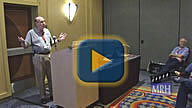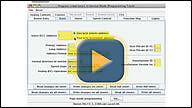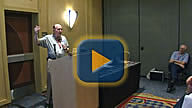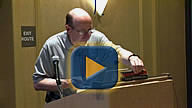Intro to DecoderPro - MRH Theater
Introduction to DecoderProLearn about the powerful free program DecoderPro in this clinic from the 2008 NMRA National Convention in Anaheim. If you are DCC user, you owe it to yourself to learn about and use DecoderPro. |
 |
|
|
|
|
|
|
|
|
|
Playback problems? Try playing this video from our mirror site. |
|
|
|
|
|
|
|
|
Playback problems? Try playing this video from our mirror site. |
|
|
|
|
|
|
|
|
Playback problems? Try playing this video from our mirror site. |
|
|
|
|
|
|
|
|
Playback problems? Try playing this video from our mirror site. |
|
|
|
|
ADDITIONAL DECODERPRO RESOURCES
|
|
>> Posts index
Navigation
Journals/Blogs
Recent Blog posts:




Comments
What a cliff hanger
I've been wanting to learn about JMRI for quite a while. I have a computer (not yet hooked up) in the railroad yard office. I look forward to the continued coverage.
Just in Time
Thank you Joe,
Talk about just in time!
I downloaded the latest version of JMRI on my computer just a couple of hours before reading this!
At last I am going to put my LocoBuffer USB into got use. Bought it last november.
BTW, very off topic, some days ago Charlie C wrote about computing compesated grades and how John Allen made a formula. I have tried to find the page, but not succested. Can someone provide me the link?
Yay!
This is series I'm anxious to see. Come on next monday! :)
Shaun
What a cliff hanger is right
I enjoyed this segment but it is just like those old series they used to show in the movie theaters where the hero is in some kind of tight spot and you had to wait for next week's episode to see how he gets out of it.
Irv
Cliffhanger, aye?
So you've got your computer hooked to your DCC system, you've fired up DecoderPro - the sweat's beading up, the knuckles are white, the clock's running out - is the DCC system going to respond or not?
Tune in next week to find out ...
Gee - I never knew DCC could be so exciting!
Joe Fugate
Publisher, Model Railroad Hobbyist magazine
Read my blog
+
Knut,
That was in the ' SHAPPING PINK FOAM ' thread, near the end of it. I can not find anything on this in the LDSIG thow.
I hope those who downloaded JMRI lately get the current version 2.3.4 and don't run Vista. Vista could be your worse nightmare with JMRI.
Marc
Thank you!
Thank you, Marc. I found the page thanks to your guidance.
Nice Intro...
...to the JMRI Suite of applications!
And some good questions from the audience too!
I have seen Panel Pro in use at Train Buddy on a number of occasions and I even purchased the USB/Serial interface over a year ago from them, but still I have not connected it up to the layout and my laptop.
I need to get cracking soon on this...by the time the next MRH Movie Monday installment comes around... <<<fingers crossed>>>
Ryan Boudreaux
The Piedmont Division Model Railroad
Modeling The Southern Railway, Norfolk and Western, and the Norfolk Southern in HO during the merger era
Vista and JMRI 2.3.4
Direct off the JMRI discussion group!
JMRI ver 2.3.4 has a patch and runs fine on Vista.
Just ask Cartman!
I just finished entering my 68 engine roster in Decoder Pro and am awaiting the delivery of my USB interface to start programming. Decoder Pro works fine with my version of Vista Ultimate. Before you ask, "do all of my 68 engines have a decoder installed", the answer is no only 12 do, but that's another story!
Those guys at JMRI are great they have a handle on DCC and Computer interface!
Les Halmos
Advertising Account Manager
Modular Columnist
A fine database of your decoder settings
As Les indicates, DecoderPro on a PC (or Mac or Linux box) is a fine way to build a database of all your decoders and their settings (make sure you back it up every once-in-a-while).
With your decoder settings all tucked away in DecoderPro, it becomes super easy to restore the settings in a decoder if it ever gets its brains scrambled. Used to be, before I installed DCC short management on my layout, that I would routinely get at least one scrambled decoder every op session following a short.
Now days, I get maybe one scrambled decoder a year. When it does happen, I just fire up the laptop, put the loco on the programming track, open up the loco's decoder file in DecoderPro, and tell it to write everything to the decoder.
Meanwhile, I can go do something else for a few minutes.
Once it's done (usually takes less than 5 minutes to rewrite everything), the loco is back to its old self!
In a similar fashion, if I have a brand of decoder I like, it's very easy to copy that decoder's settings to the new loco I've installed it into - and shazaam! A few minutes later (while I go off and do something else) ... the new decoder acts just like its sister in which I painstakingly tweaked every single setting to get it to be just exactly what I wanted.
Yes siree, with DecoderPro you will be in DCC heaven - decoder programming doesn't get any simpler!
And did I say DeccoderPro is free? Gotta love open source ...
Joe Fugate
Publisher, Model Railroad Hobbyist magazine
Read my blog